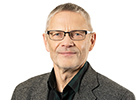Inquiry Regarding the Development of Nuclear Energy in Estonia (No. 786)
Session: 15th Riigikogu, 6th sitting, plenary session
Date: 2025-09-08 23:51
Participating Politicians:
Total Speeches: 52
Membership: 15
Agenda Duration: 51m
AI Summaries: 52/52 Speeches (100.0%)
Analysis: Structured Analysis
Politicians Speaking Time
Politicians
Analysis
Summary
The Riigikogu debate focused on the query submitted on May 20, 2025, by Riigikogu members Jaak Aab, Reili Rand, Tiit Maran, Züleyxa Izmailova, and Riina Sikkut regarding the development of nuclear energy in Estonia. The query was presented by Jaak Aab, who highlighted concerns about the high cost and long time horizon of nuclear energy—the priority of the new Energy Economy Development Plan (ENMAK). Aab referred to the expected cost increase of the Canadian Ontario BWRX-300 modular reactor project (at least 13.5 billion euros) and calculated that the 600 MW plant planned for Estonia could cost nearly 7 billion euros, emphasizing that these are only preliminary forecasts. He asked how the state intends to cover the energy deficit until 2040, when nuclear energy would, at best, only begin operating, and why greater investment is not being made in renewable energy.
Andres Sutt, the Minister of Energy and Environment, responded that the government has not decided in favor of a specific technology but has initiated special planning (eriplaneering) to determine the conditions and location for building a nuclear power plant. The Minister stressed that the nuclear plant should be completed with the support of private capital, and the state’s role is to create the legislative and supervisory framework. Sutt defended the preparation for nuclear energy as a necessary step to ensure a carbon-free baseload after 2040, noting that the Ontario plant is the first test facility for the BWRX-300 technology, and subsequent projects (e.g., in Poland and Sweden) should be cheaper. He confirmed that the development of renewable energy (including tenders and financial instruments for offshore wind farms) continues in parallel, and nuclear energy is necessary for stable production, especially given that Estonia imports one-third of its electricity. During the debate, questions were also raised regarding the state's focus, capacity for large projects, the nature of financial guarantees, and security risks.
Decisions Made 1
No decisions were made
Most Active Speaker
Jaak Aab (on the left) submitted the interpellation and was the most active speaker, delivering the introduction, posing two clarifying questions, and giving the closing statement, focusing on the economic risk of nuclear energy and the need for faster development of renewable energy.
Aseesimees Arvo Aller
AI Summary
Deputy Speaker Arvo Aller announced that the session was moving to the discussion of the ninth interpellation, which was submitted by Riigikogu members Jaak Aab, Reili Rand, Tiit Maran, Züleyxa Izmailova, and Riina Sikkut regarding the development of nuclear energy in Estonia. The report on this matter will be presented by Jaak Aab.
AI Summary
Jaak Aab noted that although nuclear energy is viewed as a priority in the energy sector development plan, its implementation is very expensive and requires thorough preparations and regulations on the part of the state. Regarding this, he posed specific questions to the minister on how to address the gap between production capacity and consumption, and the issue of financing.
Aseesimees Arvo Aller
AI Summary
Vice-Chair Arvo Aller thanks the Minister and asks the Minister of Energy and Environment, Andres Sutt, to answer the interpellation.
Energeetika- ja keskkonnaminister Andres Sutt
AI Summary
Estonia is initiating the special spatial planning process for the location of a small modular nuclear power plant, based on the application submitted by Fermi Energia. However, the government has not yet decided in favor of any specific technology. The evaluation of alternatives will take place within the framework of ENMAK (Estonian National Development Plan for the Energy Sector). This process is open and inclusive. Furthermore, international cooperation—including the Ontario test facility and opportunities arising from future European projects—will help assess the technology's suitability and the associated costs, which will remain the responsibility of the developer.
Esimees Lauri Hussar
AI Summary
The Chairman thanks the Minister and calls upon Jaak Aab to ask questions.
AI Summary
Jaak Aab acknowledges that the energy economy plan is uncertain and dependent on neighboring countries. He points to the massive investments neighbors are making in renewable energy and mentions the potential deployment of nuclear energy around 2040. He then asks what should be done in the interim and how the deficit will be covered if the development of renewables isn't accelerated quickly enough.
AI Summary
Jaak Aab notes that the figures in the energy economy plan are uncertain and that Estonia is dangerously lagging behind in renewable energy development, especially compared to Finland and Lithuania. He asks how the energy deficit is planned to be covered before the possible arrival of nuclear energy (around 2040), if the development of renewables is not accelerated and balanced with dispatchable energy.
Energeetika- ja keskkonnaminister Andres Sutt
AI Summary
The report highlights that nuclear energy is not an alternative to wind and solar power or energy storage, but rather a complementary solution that provides essential baseload power. Since its preparation phase is lengthy, work must begin early to secure necessary investments. Simultaneously, wind energy and offshore wind parks are being further developed alongside financial instruments, and there is a need for greater domestic production capacity and baseload energy, as output is very low when the sun and wind are unavailable.
Energeetika- ja keskkonnaminister Andres Sutt
AI Summary
Minister of Energy and Environment Andres Sutt confirmed that Estonia’s energy strategy encompasses both the rapid development of renewable energy (including a 2 TWh wind energy reverse auction) and the securing of investments through financial instruments, as well as preparations for nuclear energy. The latter is essential for ensuring a stable base load and preventing a deficit in domestic production capacity during periods when wind and solar energy generation is low.
Esimees Lauri Hussar
AI Summary
Chairman Lauri Hussar called upon Andre Hanimägi to speak.

Andre Hanimägi
Profiling Fraktsiooni mittekuuluvad Riigikogu liikmedAI Summary
Andre Hanimägi asks the minister to provide a brief course on how a nuclear power plant actually fits into the Estonian energy system. Given the need for renewable energy and fast-response capacity, it is difficult to understand why major expenditures should be made on a project that might only operate at partial capacity in the future.

Andre Hanimägi
Profiling Fraktsiooni mittekuuluvad Riigikogu liikmedAI Summary
Andre Hanimägi is seeking clarification from the minister regarding where the nuclear power plant can actually be located in Estonia, and whether the substantial investment, financing, and support mechanisms are reasonable, given the high share of renewable energy, the need for dispatchable energy, and the fact that the nuclear power plant might only operate at 30–40% capacity.
Energeetika- ja keskkonnaminister Andres Sutt
AI Summary
To ensure a stable and sufficient electricity supply in Estonia and to finance long-term investments, a nuclear power plant could address the energy deficit and support regionally growing consumption (including data centers). This should be achieved by utilizing financial guarantees for banks to issue long-term loans, rather than providing direct subsidies.
Esimees Lauri Hussar
AI Summary
The Chair thanked the Minister, noted that the classroom layout allows for short courses to be held, and requested that they move on and invite Züleyxa Izmailova.

Züleyxa Izmailova
Profiling Fraktsiooni mittekuuluvad Riigikogu liikmedAI Summary
Züleyxa Izmailova criticizes the current government for lacking focus in both energy and taxation, arguing that this sends confusing signals to investors and demonstrates the state's inability to execute major projects. She contrasts this with Ukraine, where a climate law and 22 kilometers were completed in two years.
Esimees Lauri Hussar
AI Summary
The speech urges listeners to take action and assume responsibility, stating that it is their time.

Züleyxa Izmailova
Profiling Fraktsiooni mittekuuluvad Riigikogu liikmedAI Summary
He discusses railways using the European gauge and notes that in the energy sector, the lost decade could soon turn into two.
Esimees Lauri Hussar
AI Summary
Chairman Lauri Hussar thanks the minister and asks him for something.
Energeetika- ja keskkonnaminister Andres Sutt
AI Summary
Minister of Energy and Environment Andres Sutt explained that the long-term energy strategy is contained within the detailed development plan for the energy sector, which will be submitted to the Riigikogu for a comprehensive debate. He confirmed that the government's focus is on defense and economic competitiveness, and added that the adoption of nuclear power plant legislation is important for Estonia's future.
Energeetika- ja keskkonnaminister Andres Sutt
AI Summary
The Minister of Energy and Environment, Andres Sutt, said that Estonia's long-term energy strategy is laid out in the development plan, and the government's focus is on defense and economic competitiveness. Furthermore, discussions in the energy sector, along with the nuclear power plant and the adoption of the necessary legislation for it, will help improve Estonia.
Esimees Lauri Hussar
AI Summary
Chairman Lauri Hussar addresses Tiit Maran with a request.

Tiit Maran
Profiling Fraktsiooni mittekuuluvad Riigikogu liikmedAI Summary
Tiit Maran asks how it is possible to guarantee readiness for commissioning a nuclear power plant (including the regulatory framework and the operator) when it is almost impossible globally to build one without massive taxpayer funding, and whether there is a forecast of how much the state will actually invest in nuclear energy, considering what has been heard from Canada.
Energeetika- ja keskkonnaminister Andres Sutt
AI Summary
Andres Sutt said that although there is funding and international demand for nuclear energy, Estonia needs to establish long-term electricity price agreements to attract investments. Furthermore, Estonia does not want to be the first country to test small modular reactors, despite the fact that there is interest and ongoing development in countries like Poland, Sweden, and others.
Energeetika- ja keskkonnaminister Andres Sutt
AI Summary
Minister of Energy and Environment Andres Sutt analyzed the high initial costs associated with nuclear energy projects, citing examples like Canada’s first SMR, but stressed that Estonia is not alone in adopting nuclear energy, given the enormous global investments being made. He addressed the need for a financial instrument, as Estonia lacks a market for long-term Power Purchase Agreements (PPAs), and argued that banks’ excessive risk aversion and unrealistically low electricity price forecasts are the main obstacles. However, he noted that these issues should resolve themselves according to market logic, as prices will inevitably rise in the absence of investment.
Esimees Lauri Hussar
AI Summary
Chairman Lauri Hussar invites Reili Rand to speak.

Reili Rand
Profiling Sotsiaaldemokraatliku Erakonna fraktsioonAI Summary
Reili Rand criticized the energy policy, calling it faith-based, and questioned how this shift in direction would impact the investment climate and immediate decisions, such as the nuclear power plant project. Furthermore, she demanded to know what the minister would tell the Estonian people about how long they must endure high electricity prices and personally shoulder the cost of grid reinforcement.
Energeetika- ja keskkonnaminister Andres Sutt
AI Summary
Energy and Environment Minister Andres Sutt stated, in the context of the comprehensive discussion held under the ENMAK framework, that the total price should be competitive and lower than the average of the Baltic Sea region countries, even if network tariffs might increase.
Esimees Lauri Hussar
AI Summary
Chairman Lauri Hussar addresses Riina Sikkut and asks her to speak.

Riina Sikkut
Profiling Sotsiaaldemokraatliku Erakonna fraktsioonAI Summary
Riina Sikkut says that although gold is mined and electricity is produced in nuclear power plants in some countries, we lack nuclear fuel and experience, and a state venture utilizing taxpayer money and taking on long-term obligations for gold mining does not seem sensible if there is no clear probability of obtaining cheap energy.
Energeetika- ja keskkonnaminister Andres Sutt
AI Summary
Minister of Energy and Environment Andres Sutt pointed out that global investments in nuclear energy production in 2024 were about 65 billion, and according to forecasts, this will grow to over 70 billion annually by 2030. He then asked which energy source would cover the baseload if nuclear energy does not fit into the energy portfolio.
Esimees Lauri Hussar
AI Summary
Chairman Lauri Hussar emphasizes that the discussion focuses on the procedure for conducting the sitting, and he hopes that this is the correct topic, because otherwise he will not be able to give the floor to Riina Sikkut.

Riina Sikkut
Profiling Sotsiaaldemokraatliku Erakonna fraktsioonAI Summary
Riina Sikkut inquires about the procedure for conducting the session, asking whether her claims can be substantiated, in what format this should be done, and whether she may pose a new question or receive additional time to ask the question.
Esimees Lauri Hussar
AI Summary
Chairman Lauri Hussar explained that members of the Riigikogu are allowed one oral question during an interpellation, but they also have the opportunity to come to the podium to state their position, and the minister can respond simultaneously, which helps find answers during the course of the debate; Rain Epler has been waiting for a long time.

Rain Epler
Profiling Fraktsiooni mittekuuluvad Riigikogu liikmedAI Summary
The report indicates that while Andres was correct in his points about nuclear energy, enthusiasm was lacking. It then highlights statistics on European primary energy consumption—approximately 52 exajoules, of which only about 5% comes from wind and solar, three-quarters from fossil fuels, and roughly 85% is imported—and asks how this will impact Europe's geopolitical position and economy in the future.
Energeetika- ja keskkonnaminister Andres Sutt
AI Summary
Andres Sutt stated that Estonia will have to import nuclear fuel for its nuclear energy needs, and although the role of fossil fuels will diminish in the future, technological development shows that the world is rapidly moving toward nuclear energy, and Estonia is on the right track.
Esimees Lauri Hussar
AI Summary
The Chairman announces that we are moving on, and the next questioner is Peeter Ernits.

Peeter Ernits
Profiling Fraktsiooni mittekuuluvad Riigikogu liikmedAI Summary
Peeter Ernits asks the minister to do a little promotion for the meeting of 'mind and power' scheduled for September 23rd, and to invite his colleagues to hear what the academics and esteemed company will be discussing behind closed doors.
Energeetika- ja keskkonnaminister Andres Sutt
AI Summary
Minister of Energy and Environment Andres Sutt said that this time's dialogue on Toompea will focus on the energy sector, and he intends to speak enthusiastically about the Energy Economy Development Plan.
Esimees Lauri Hussar
AI Summary
Speaker Lauri Hussar invites Raimond Kaljulaid to speak.

Raimond Kaljulaid
Profiling Sotsiaaldemokraatliku Erakonna fraktsioonAI Summary
Raimond Kaljulaid asks, from a national defense perspective, whether Russia would recommend a centralized or distributed energy production model for Estonia, pointing to the deliberate destruction of Ukraine’s energy infrastructure.
Energeetika- ja keskkonnaminister Andres Sutt
AI Summary
Minister Andres Sutt noted that providing assistance to Ukraine is entirely good and appropriate, emphasizing the protection of critical infrastructure—physical, including on the ground and in the airspace, as well as cybersecurity—and the importance of the origin of technologies used in energy infrastructure, stating that energy production is already distributed and will remain distributed going forward, and affirmed that national defense is based on reliable deterrence and proactive response, and that defense expenditures exceeding 5% of GDP, together with allies, also guarantee the protection of the energy sector.
Esimees Lauri Hussar
AI Summary
Chairman Lauri Hussar thanks the minister and announces that there are no questions. Before opening the floor for debate, he notes that two hands have been raised, one of which is a procedural question from Peeter Ernits concerning the conduct of the sitting.

Peeter Ernits
Profiling Fraktsiooni mittekuuluvad Riigikogu liikmedAI Summary
Peeter Ernits warns that the state secret has already spread and Russia is already aware, meaning the question is now too late.
Esimees Lauri Hussar
AI Summary
The Chairman thanked everyone and pointed out that there was a question regarding the procedure for holding the session.

Rain Epler
Profiling Fraktsiooni mittekuuluvad Riigikogu liikmedAI Summary
Rain Epler posed two procedural questions regarding the format of the dialogue between the Riigikogu and the Academy of Sciences: how the minister’s appearance fits into this format, and whether the selection of speakers, potentially made in the name of promoting the coalition, might diminish Riigikogu members’ interest in the cooperation format.
Esimees Lauri Hussar
AI Summary
Chairman Lauri Hussar invited all Riigikogu members to take part in the energy debate, noting that participants from the previous session had given the meeting a very high rating. He also stressed the significant contribution and expertise of the Academy of Sciences, making attendance highly worthwhile.
AI Summary
Jaak Aab emphasized that in the coming years, Estonia must increase the share of domestic production capacity, develop renewable energy sources coupled with storage, and invest in diversified generation capacities. This is essential both to cover annual consumption and to maintain competitiveness, while simultaneously considering the economic viability of nuclear energy and the precise timing of those investments.
Esimees Lauri Hussar
AI Summary
Chairman Lauri Hussar says he is asking whether additional time is needed.
Esimees Lauri Hussar
AI Summary
The speaker says that extra time is being added to the game.
AI Summary
Jaak Aab stresses that the future of nuclear energy is hard to predict, and Estonia shouldn't gamble, but rather make informed decisions based on analyses and expertise, all within the scope of the energy sector development plan.
Esimees Lauri Hussar
AI Summary
Chairman Lauri Hussar expresses his thanks, confirms there are no further requests to speak, asks if the Minister wishes to take the floor, and if the Minister declines, he will close the discussions and conclude the consideration of our ninth agenda item.
